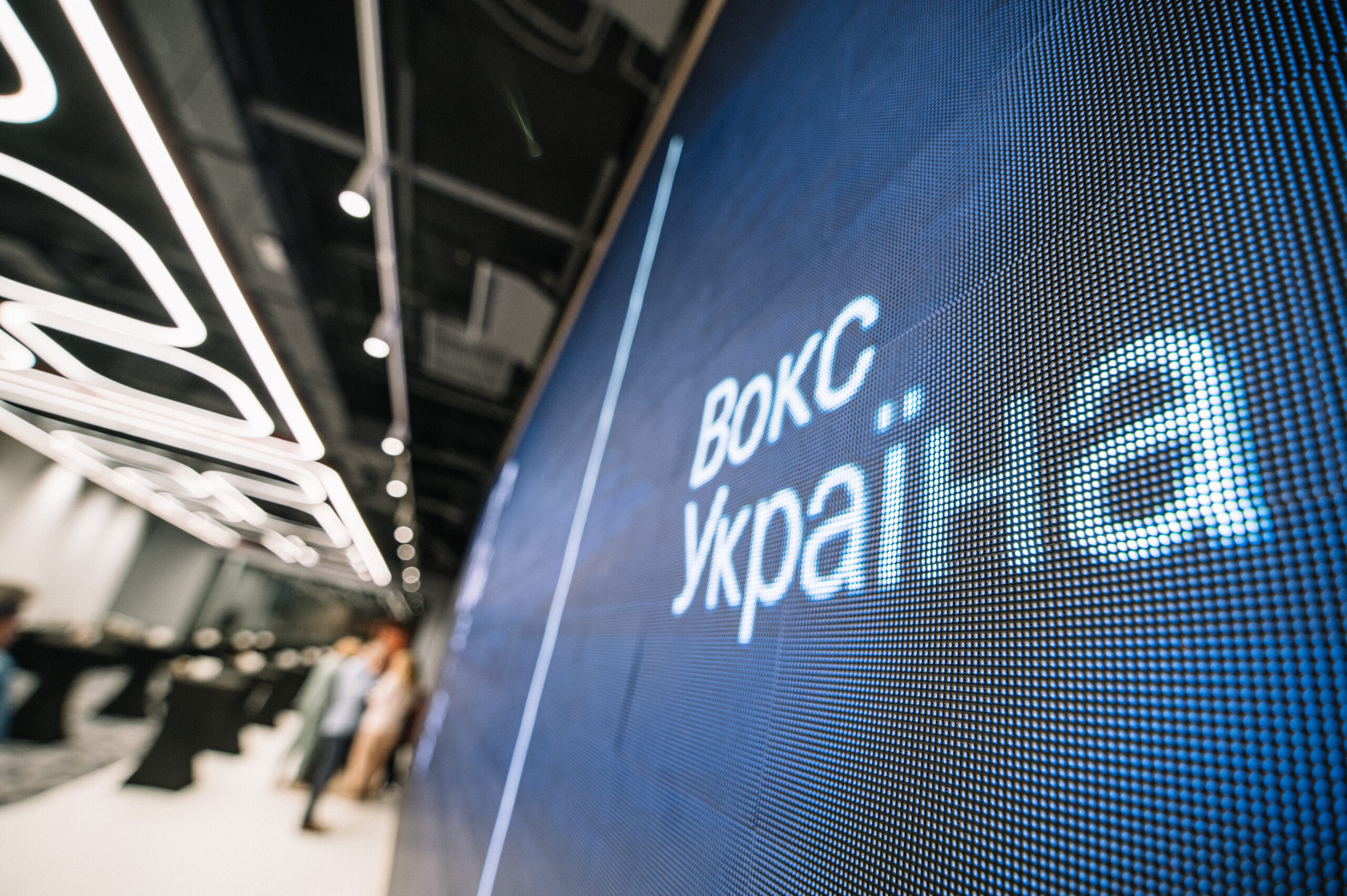In this article, the authors analyze new risks and opportunities for Ukrainian technology outsourcing companies after the Revolution and during Anti-terrorist operation. They concentrated on the positive and negative factors in politics, economy and business environment.
“So your family is still in Ukraine? Are they safe?” That’s the follow-up question I get in three out of four cases when introducing myself to foreign colleagues. On such occasions, I usually explain that however terrifying the idea of military actions in Ukraine, the scope of warfare should not be exaggerated. Just a couple of geographic facts to put things into perspective:
- The distance from Ukrainian Western border to the area of fighting is equivalent to the distance from Germany’s West to Poland’s East.
- The area disturbed by military actions does not exceed 4% of Ukraine’s territory
- The number of soldiers involved in the Anti-terrorist Operation in Eastern Ukraine constitutes just 0.1% of the state’s population.
Geography might be helpful, but what about business? No investor would like to be exposed to the risk of military intrusion. Paradoxically, the occupied 4% is good news for investors, because the risk of invasion already materialized. The recent moves by Russia signal its willingness to keep the frozen conflict in Eastern Ukraine as a point of pressure on Kyiv, but Russia’s Vladimir Putin is unlikely to advance the military offence further into the country, according to analytics by The Economist. To put it simple, if we take annexed Crimea and frozen conflict in parts of Donetsk and Lugansk regions as given, little changes in terms of Ukraine’s attractiveness as the destination for IT outsourcing.
The winner of MindSketch December Competition
But what about political instability and unveiling economic downturn? What about infrastructure security, possible data losses, and resulting delivery interruptions? These are valid concerns, but the perceived risks are highly inflated. Let us explain why.
POLITICAL INSTABILITY
Bad news
Ukraine just lived through a year of mass protests, government change, and Russian invasion. Unfortunately, the perception of Ukraine formed around a sole dimension of geopolitical risk. The facts are, in 2014 Ukrainians overturned the corrupt dictatorship regime of Yanukovych, elected the new president and new Parliament, stopped Russian forces from advancing further west, and set the country on the track of pro-European reforms.
Good News
The period of political uncertainty ended, as the country elected the new parliament on October 26, 2014. The election results prove that the coalition is likely to support the president Petro Poroshenko in his course for Euro-integration, economic reforms and peace in Eastern Ukraine. Moreover, current prime-minister’s party achieving the second highest number of votes gives confidence in the continued policies for strengthening Ukraine’s IT sector, subsidizing energy-saving technologies and fighting corruption.
In this political environment, start-ups are likely to become the driving force of Ukrainian IT. Companies like Optigra – born global, highly competitive and extremely flexible in client offerings – take the market by the horns. This development has precedent:the annual IT industry growth reached 25% in 2010-2011, driven mainly by newly established companies.
More Good News
In fact, support of IT sector is one of the central topics on the three leading parties’ political agendas. Also, Dmytro Shymkiv, presidential deputy chief of staff, a former CEO of Microsoft Ukraine, is to lead the reforms necessary for the Ukrainian IT industry to realize its full potential. The clear pro-EU government policy raises chances of further law harmonization, making entrepreneurship easier, and removing capital flow barriers.
RECESSION
Bad news
The economic recession in Ukraine has deepened since the military actions started, prompting the Ukrainian National Bank to revise its estimates of GDP growth to -8.3% for 2014.The national currency, hryvnia, devalued by over 50%, and the country borrowed heavily, increasing its debt to GDP ratio from 40% to 68%, according to IMF estimates.
Good News
The hryvnia devaluation is in fact good news for foreign customers, as the cost of Ukrainian outsourced IT services becomes cheaper in dollar terms. Moreover, hryvnia is likely to depreciate more in the near future, as IMF requires the currency to float as a pre-condition for its future bail-out tranches for Ukraine. Hence, cost efficiency for outsourcers can improve further down from 40-45% of US rates.
More Good News
As Ukrainian heavy industries suffered significant losses due to Russian gas supply disruptions and seized factories on occupied territories, the government places heavier emphasis on restructuring the economy towards the IT services sector. The ultra-low 5% tax rate for IT service providers is one of the measures. Moreover, relatively difficult economic conditions usually lead to low attrition rates, as employees value job security more, and thus stick to the same employer for a longer time period.
BUSINESS RISKS
Bad news
The Russian aggression towards Ukraine resulted in businesses getting concerned – primarily with their workers’ safety. For example, Luxoft, a Russia-founded (but Switzerland-based) IT service provider announced it was moving 800 workers from Russia and Ukraine further west. The share prices of Luxoft and EPAM, another IT service provider with exposure to Ukraine, plummeted on the news of military actions in May, but subsequently recovered.
Good News
Anthony Conte, CFO of EPAM Ukraine, said: “Workers actually stepped up productivity this year, despite distractions.” EPAM Systems operates Barclay’s Global Technology center in Kyiv, one of the most advanced facilities of its kind in Ukraine, hiring 500 IT specialists. Salil Dani of Everest Group, a management consultancy, commented “Over the longer term (3-4 years) the issues with Russia are unlikely to have a significant impact on service delivery in Ukraine. Ukraine’s proposition as a technology service location is well established, particularly for domain-intensive skills.”
The perceived location risk is largely exaggerated: in practice, the largest Ukrainian IT clusters – in Lviv and Kyiv – are located far from the zone of military actions. For example, the distance from Lviv to the zone of warfare is about two times the width of Germany from east to west. Hence, the actual risk of war-induced service interruptions is not higher than in Poland or Romania.
More Good News
Worker relocation, which used to be a major risk for outsourcers from Crimea or Donbas region, has now led to the concentration of highly skilled workers in Western IT clusters (Lviv) and in Kyiv, as they moved from the unsafe parts of the country. This gave a boost to Lviv’s outsourcers, such as Optigra, which now have an even greater pool of talent to choose from. Moreover, the post-Revolution revival of the national spirit attracts also west-educated ambitious people to come back from abroad and join forces in building a better, more modern Ukraine. Evelin Buchatska, partner in EstLabs, a startup incubator, noticed, “I have never seen so much energy and so much desire for success in Ukraine before.”
I like finishing those “Are your family safe?” conversations on a positive note. “We are safe enough to make you good money.” The worst is behind, as the political situation now stabilized, and military actions are unlikely to extend further. The devalued currency and favorable tax policies make Ukrainian outsourcers’ prices more attractive than ever, while Ukraine’s tech talent is now concentrated within key outsourcing clusters. It’s just about perfect time to reap the benefits of outsourcing to Ukraine.
Attention
The author doesn`t work for, consult to, own shares in or receive funding from any company or organization that would benefit from this article, and have no relevant affiliations


